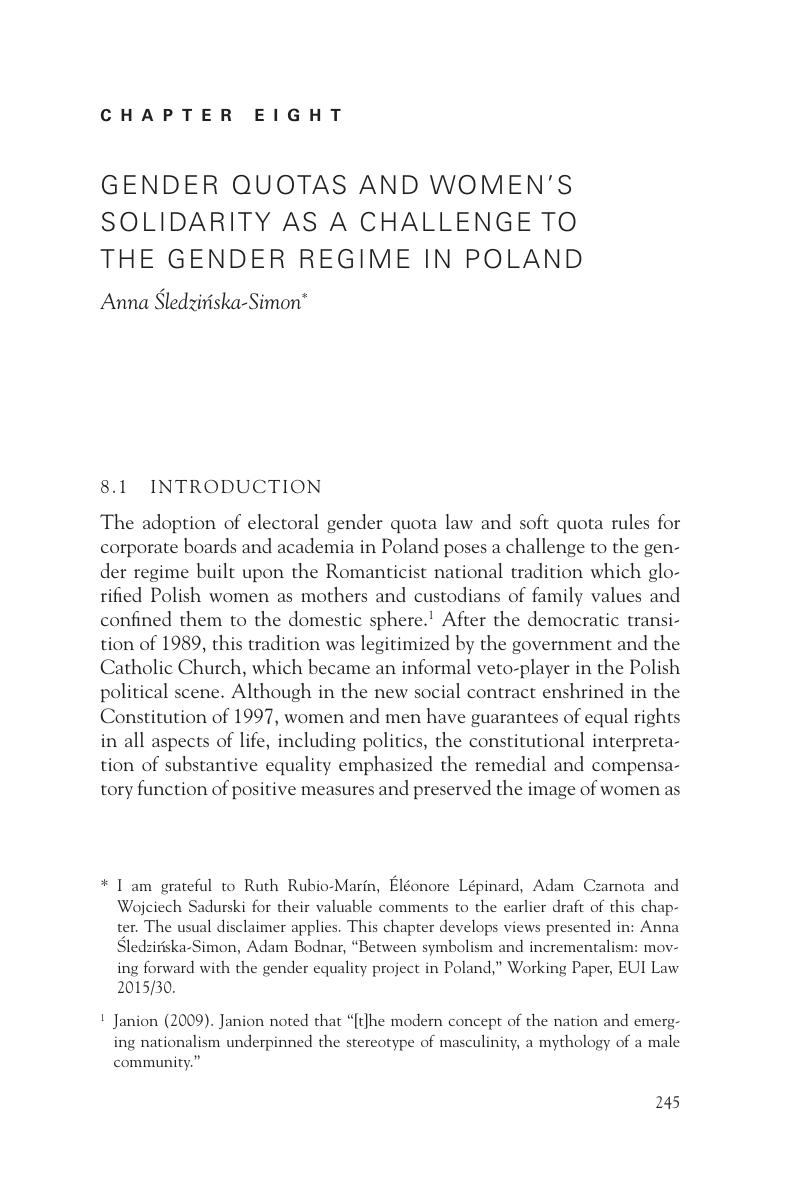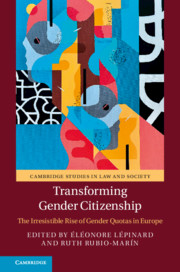Book contents
- Transforming Gender Citizenship
- Cambridge Studies in Law And Society
- Transforming Gender Citizenship
- Copyright page
- Contents
- Figures
- Tables
- Acknowledgments
- Introduction
- Part I Gender Quotas As Transformative Equality Remedies
- Part II Gender Quotas As Symbolic Equality Remedies
- Chapter Five The Protracted Struggle for Gender Quotas in Greek Politics
- Chapter Six Eppur si muove
- Chapter Seven From Electoral to Corporate Board Quotas
- Chapter Eight Gender Quotas and Women's Solidarity As a Challenge to the Gender Regime in Poland
- Part III Gender Quotas as Corrective Equality Remedies
- Part IV Gender Quotas As Accessory Equality Measures
- Conclusion
- Index
- Cambridge Studies in Law and Society
- References
Chapter Eight - Gender Quotas and Women's Solidarity As a Challenge to the Gender Regime in Poland
from Part II - Gender Quotas As Symbolic Equality Remedies
Published online by Cambridge University Press: 21 July 2018
- Transforming Gender Citizenship
- Cambridge Studies in Law And Society
- Transforming Gender Citizenship
- Copyright page
- Contents
- Figures
- Tables
- Acknowledgments
- Introduction
- Part I Gender Quotas As Transformative Equality Remedies
- Part II Gender Quotas As Symbolic Equality Remedies
- Chapter Five The Protracted Struggle for Gender Quotas in Greek Politics
- Chapter Six Eppur si muove
- Chapter Seven From Electoral to Corporate Board Quotas
- Chapter Eight Gender Quotas and Women's Solidarity As a Challenge to the Gender Regime in Poland
- Part III Gender Quotas as Corrective Equality Remedies
- Part IV Gender Quotas As Accessory Equality Measures
- Conclusion
- Index
- Cambridge Studies in Law and Society
- References
Summary

- Type
- Chapter
- Information
- Transforming Gender CitizenshipThe Irresistible Rise of Gender Quotas in Europe, pp. 245 - 276Publisher: Cambridge University PressPrint publication year: 2018
References
- 1
- Cited by



